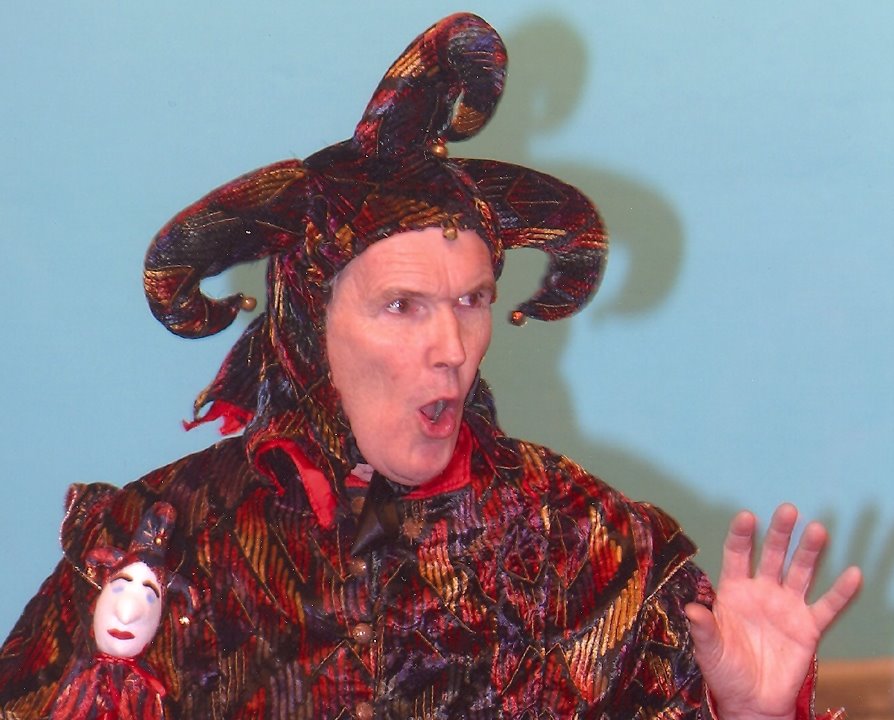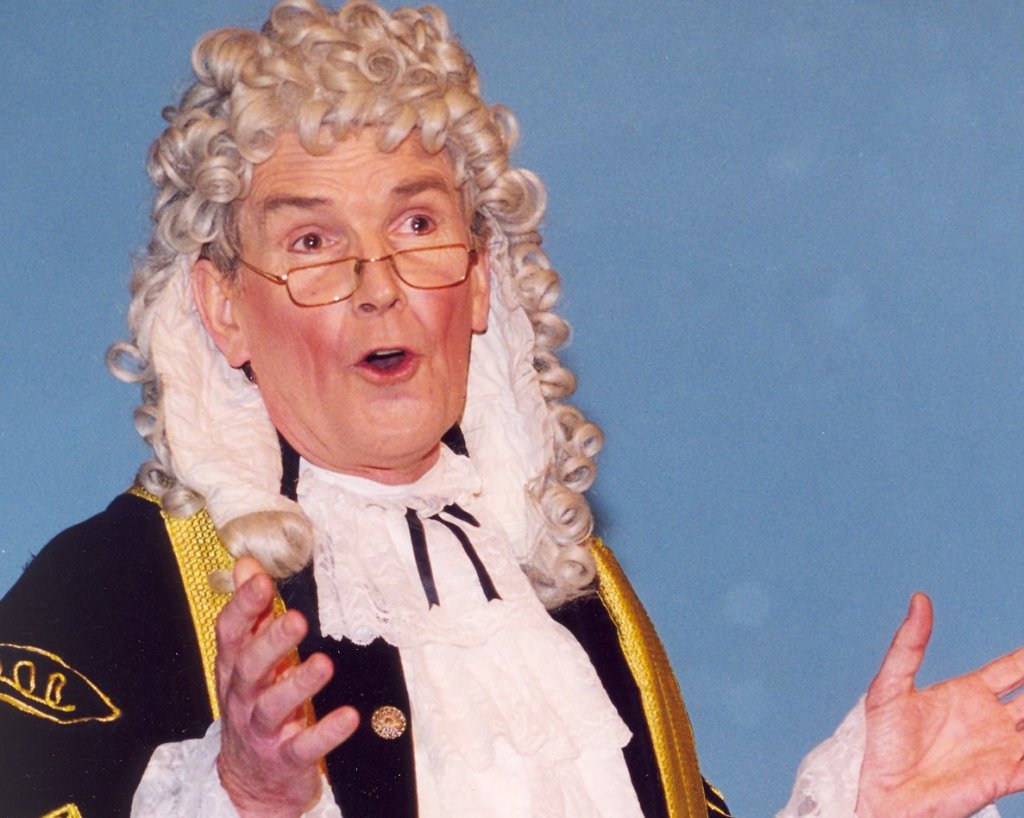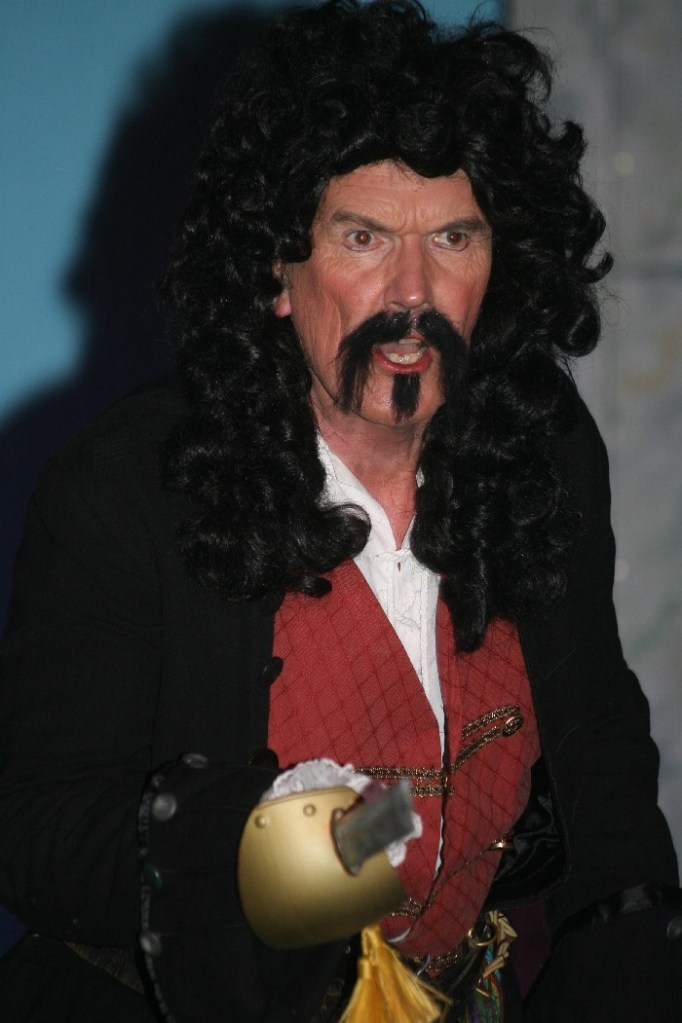A grain or two of truth
W.S.Gilbert put a lot of himself into Jack Point, the tragic jester in The Yeomen of the Guard – the nearest thing to serious opera he and Sir Arthur Sullivan wrote in their long partnership.

I was lucky enough to play Jack Point myself, one of a number of roles I had over the years with Alton Operatic & Dramatic Society our small town’s own company – AODS for short.
Naturally, people see Gilbert first and foremost as a jester – his wit and brilliance with rhyme and meter have rarely if ever been equalled.
But I remember being aware as I played Jack Point that there was another side to Gilbert, that he also wanted to say serious things about human nature, about society, about scandals in high places. Which is exactly what he is saying as he describes the power of the jester’s role in “I’ve jibe and joke…” the great song that I – a recently retired doctor in the town, no less – had the joy of singing:
‘Winnow all my folly, folly, folly and you’ll find
a grain or two of truth among the chaff‘
A grain or two of truth. Gilbert’s librettos were full of truths, surely one of the reasons why so many amateur companies did little but ‘G&S’ – and in some cases nothing but G&S – for generations.
Here, for example, is another of my favourites: Private Willis (no relation, and never a role I played) is on sentry duty outside the House of Lord’s at the opening of Act II of Iolanthe, and he tells us:
“I am an intellectual chap and think of things that will astonish you“.
Truths, for example, like this:
“That every boy and every gal That’s born into the world alive
Is either a little Liberal Or else a little Conservative !“.
Surely that is an enduring truth, and rather depressing, one. That people seem to be born pre-stamped with an indelible political polarisation. And it’s just as valid today as it was at end of the 19th Century. It’s hard to think of a better response than Sgt. Willis’s baleful “Fal, lal, la !” with which Gilbert ends each verse.
It is well known that Gilbert’s ‘grains of truth’, aimed at the highest places in society, made him unpopular with the establishment. Thus we have his splendidly-named Lord Mountararat in Iolanthe, recounting without apparent irony the glories of British history:
When Wellington thrashed Bonaparte, As every child can tell,
The House of Peers, throughout the war, Did nothing in particular,
And did it very well.
That is supposed to be why, in spite of his peerless verse being at least as important as Sullivan’s music in the phenomenal success of their collaboration, unlike Sullivan, Gilbert was never knighted.
You may say that he asked for it. Time and again he depicted his highly-placed characters as figures of ridicule. The Major General in The Pirates of Penzance is so ‘modern’ and educated that, although he can ‘write a washing bill in Babylonic cuneiform‘ he actually has no idea ‘what progress has been made in modern gunnery‘, and no more knowledge of ‘tactics than a novice in a nunnery‘.
In HMS Pinafore Sir Joseph Porter, KCB, advises anyone wishing to follow him and become ‘ruler of the Queen’s Navee‘, to “stick close to your desks, and never go to sea“, just as he had done. This was a jibe at the notoriously land-lubber Admiral of The Fleet of the day. But as today we see political cronies devoid of appropriate experience being appointed to senior defence and intelligence positions on both sides of the Atlantic, Gilbert’s jesting once again speaks of something timeless about the human situation.

One final example of this: the Lord Chancellor in Iolanthe, another part I once played (Think Nightmare Song – I cherish the memory of managing the dress rehearsal and all six performances without a single slip), sings, in another song, Said I to myself, said I, a long list of naughty things that (other) judges get up to, which he has promised himself he will never, ever do. For example:
My learned profession I’ll never disgrace
By taking a fee with a grin on my face
When I haven’t been there to attend to the case
(Said I to myself – said I !)
But it wasn’t just senior figures Gilbert lampooned, he also directed his barbs at contemporary trends. The whole of The Mikado is a spoof on the then-prevailing fashion to admire all things Japanese. The comic names of the characters – Pooh Bah, Pish Tush (noble lords) and Yum Yum, Nanki Pooh (the love-lorn central couple) – were among many aspects which would today be regarded as diplomatically suspect, to put it mildly.
Another hot topic at the time was Darwin’s Origin of Species. So Gilbert, evidently a skeptic, had his go at the explosive new suggestion that mankind had descended from the apes. In Princess Ida he gives Lady Psyche a song in which she tells the tale of an ape’s attempt to win the love of a certain ‘Lady fair, of lineage high‘.
The ape’s courtship was not a success:
He bought white ties, and he bought dress suits,
And he crammed his feet into bright tight boots –
And to start in life on a brand-new plan,
He christened himself Darwinian Man !
But it would not do,
The scheme fell through –
For the Maiden fair, whom the monkey craved,
Was a radiant being,
With a brain far-seeing –
While Darwinian Man, though well-behaved,
At best is only a monkey shaved !
Another contemporary trend was aestheticism, and specifically the cult of Oscar Wilde. In a scarcely disguised parody, he has Bunthorne in Patience – revealing in confidence to the audience – ‘am I alone, and unobserved? – I am‘ – the shocking truth that his professed aestheticism is merely ‘affectation, born of a morbid love of admiration‘:
Though the Philistines may jostle, you will rank as an apostle in the high aesthetic band,
If you walk down Piccadilly with a poppy or a lily in your medieval hand.
And every one will say,
As you walk your flowery way,
“If he’s content with a vegetable love which would certainly not suit me,
Why, what a most particularly pure young man this pure young man must be!”

I will finish with my own swansong in a G&S role – The Pirate King in AODS’ 2009 production of The Pirates of Penzance.
Here we have Gilbert once again pointing out the essential amorality of establishment norms.
Frederick the apprentice pirate has reached his age of maturity and is about to return to the respectable world, where he much regrets that he will feel obliged to seek the extermination of his former companions.
So he urges the King – played by me – to render such unpleasantness unnecessary by accompanying him back to civilisation.
“No, Frederick,” I reply, ” it cannot be. I don’t think much of our profession, but, contrasted with respectability ‘banking for that matter’ (note my topical ad lib as it was just after the banking crisis) it is comparatively honest…
(That bit of video was taken by one of my family from the front row of the audience at the Saturday matinée. Just before a penetrating little voice called out, “Is that Grandpa up there?”)
The second verse carries on in the same vein:
When I sally forth to seek my prey
I help myself in a royal way.
I sink a few more ships, it’s true,
Than a well-bred monarch ought to do;
But many a king on a first-class throne,
If he wants to call his crown his own,
Must manage somehow to get through
More dirty work than ever I do,
Here we have another ‘grain or two of truth among the chaff.’. The idea that people in low places – even actual pirates – are more honest than people on high has powerful resonances today. Knowing life in the small town I live in and which I worked in throughout my career as a family doctor, I see absolute honour amongst small people almost every day.
So, Gilbert the tragic jester puts this advice into the mouth of his alter ago Jack Point:
He who’d make his fellow, fellow, fellow creatures wise,
Should always gild the philosophic pill.
There was so much more than mere comedy in Gilbert’s verse, and in these extraordinary roles. Which is what makes Gilbert great, and what made it such a privilege to perform so many of them.

We both thoroughly enjoyed your post and what a treat – finally – to hear you sing! Bravo and thank you.
LikeLike
I really appreciate that Kate. It was very amateur, small town stuff, but that is the point of amateur – ‘for the love of it’. Sometimes, up there performing on that stage, I have been aware of being completely happy. Especially in duets. That is the only record I have now, but it is enough, records are too liable to diminish the memory.
Now you have no excuse for not letting us see some of yours. Different genre – different level.
Please.
LikeLike